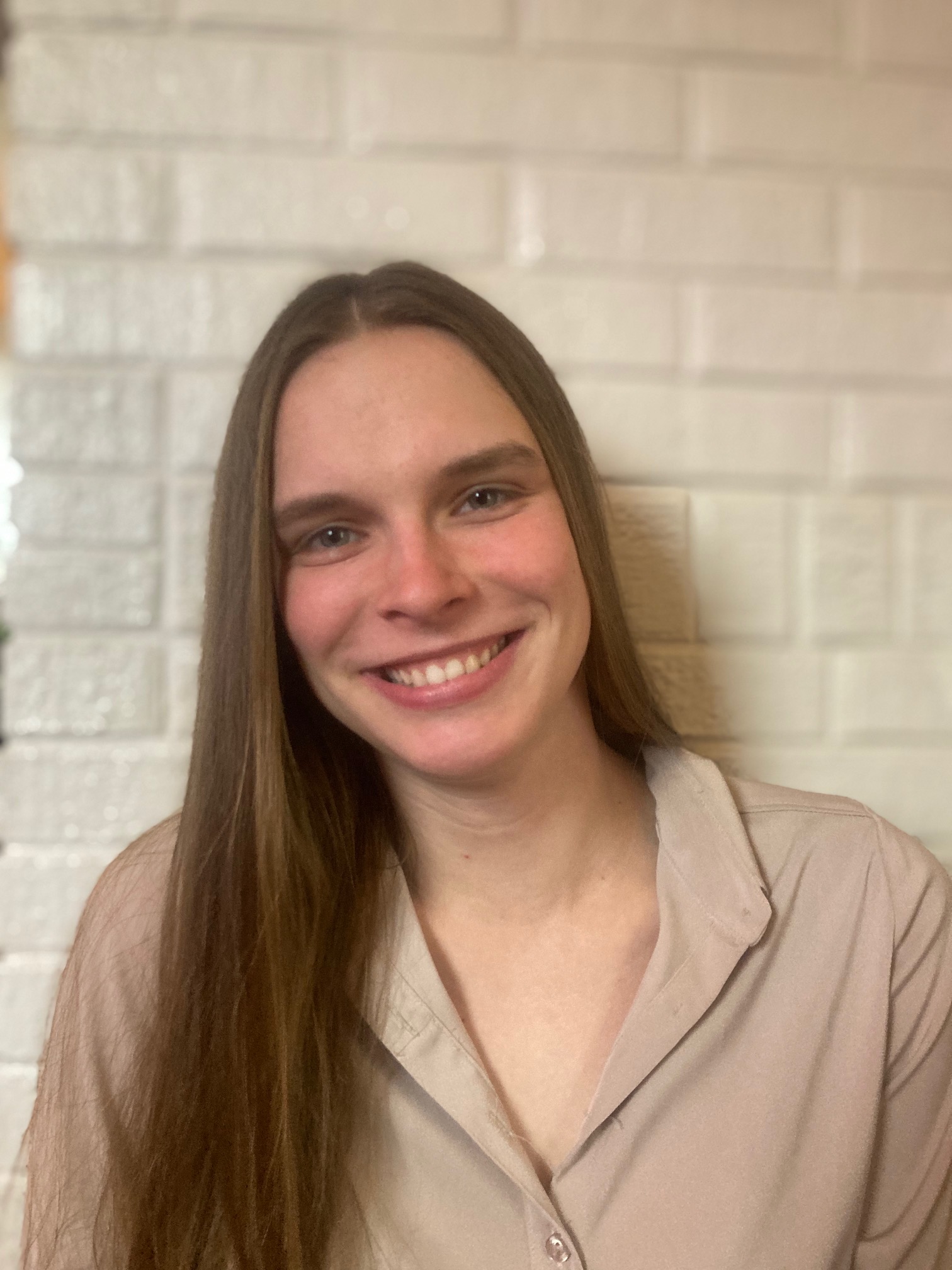Incoming ME grad student named Research Fellow for prestigious NSF program
Author: Nick Fetty
Author: Nick Fetty

With an abundance of undergraduate research experience under her belt, Bella Guyll is ready to continue her studies and further advance her research as a graduate student.
Guyll, who completed her B.S. in mechanical engineering (ME) in 2021 and who will begin her doctoral studies in ME in Fall 2022, has been accepted into the prestigious National Science Foundation (NSF) Graduate Research Fellowship Program. She is one of just five students from Iowa State University to receive this honor. The five-year fellowship includes three years of financial support including an annual stipend of $34,000 and a cost of education allowance of $12,000 to the institution.
“I was pretty excited,” said Guyll. “I put a lot of time into my application, so it was nice that it wasn’t all for naught.”
Guyll grew up in Nevada, Iowa and graduated from Ames High School so she didn’t have to move far when she decided to attend Iowa State University. She enjoyed math classes in high school and decided to pursue ME in college because of its broad applicability which she felt would lead to a wide range of career opportunities.
“One of my favorite parts about engineering is working on issues in a thorough manner in order to reach an acceptable solution,” she said.
Her participation in Iowa State’s freshman honors program exposed her to research in energy systems. Her first significant research experience came during the summer of 2019, when she applied to and was accepted for the Research Experience for Undergraduates (REU) program at the University of Florida. She worked under the direction of Jonathon R. Scheffe to examine the ability of perovskites to produce hydrogen using a solar thermochemical reactor.
Specifically, she investigated LSM40 (La0.6Sr0.4MnO3) as a redox material to produce hydrogen in a chemical reactor and compared it to the current state of the art redox material, Ceria. She conducted a literature review, fabricated the LSM40 in the lab using a modified Pechini method and developed a VisualBasic program to determine and set control parameters on the system. She presented her findings during the department’s research symposium and co-authored a paper that went on to be published in the journal Energy & Fuels in 2020.
Guyll felt that this REU experience was so valuable that she decided to apply to another REU program, this one at Florida Atlantic University – Harbor Branch, during the summer of 2021. This time she worked under the guidance of Jordan Beckler to quantify the secondary benefits that sediment microbial fuel cells (SMFCs) have on nutrient cycling in eutrophied environments. Specifically, she investigated the secondary benefits of SMFCs on phosphorus concentrations and speciation, with emphasis on how loads placed on fuel cells affected performance.
“I was involved in all phases of this research project, which included writing the research proposal, conducting a literature review, developing experimental methodology, and collecting and analyzing data,” said Guyll, adding that the data analysis involved using a colorometric ferrozine technique as well as various sediment extraction methods to quantify the total phosphorous within the sediments and water column.
At Iowa State, Guyll has worked under the guidance of Cary Pint, Charles Schafer (Battelle) Chair of Engineering and associate professor of ME. In Pint’s ENERG @ ISU Lab, she worked alongside graduate students to determine how placing electrodes under mechanical stresses in aqueous batteries can enhance electrochemical performance.
To decompress after a long day in the lab, Guyll enjoys snowboarding when the conditions allow. She was a member of Iowa State’s Alpine Ski and Snowboard Team as well as the Ski and Snowboard Club through which she met both friends and engineering study buddies. During the warmer months she enjoys camping, hiking, woodworking and beekeeping.
Guyll is currently on a co-op with Frontline Bioenergy in Ames, which will conclude in August. As a graduate student, Guyll will work under the guidance of Pint as well as Ethan Secor, assistant professor of ME, to study lithium-ion battery recycling and the digital printing of batteries. Once she completes her Ph.D. she hopes to continue doing research in batteries and renewable energy, whether it be in academia, a national lab or even in the private sector.
“I am looking forward to the challenges that I will face in graduate school,” said Guyll. “Getting to be on the frontier of battery technology at this point in time is very exciting and I am happy that I get to continue my journey doing so at Iowa State.”